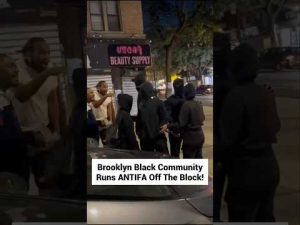In a heated ongoing debate over immigration and law enforcement, Pam Bondi, the Attorney General, has made it abundantly clear that she believes it’s high time for sanctuary cities to work with federal law enforcement. She put forth a demand, asking leaders in these particular cities and counties to respond to her request by the end of the day yesterday. Yet, despite her call to action, many sanctuary cities remain steadfast in their refusal to cooperate. Boston’s Mayor Michelle Wu is among those who have openly declared that Boston will not back down from its current stance. Meanwhile, across the country, Washington State Governor Bob Ferguson has dug his heels in, asserting his refusal to be intimidated by federal pressure.
The question looming over this contentious scenario is whether the federal government can truly compel states and cities to comply with its demands. It’s a legal quagmire that has become a perennial issue, sparking numerous debates and court battles over the years. Jurists and analysts have weighed in, and it becomes increasingly clear that courts have established precedent on this matter. In simpler terms, Attorney General Bondi faces a formidable hurdle in her attempt to enforce her orders. The Supreme Court has solidified the view that cities and states cannot be forced into compliance with federal law, no matter how passionately federal officials may insist otherwise.
This legal standpoint raises important questions about the relationships between local and federal authorities. Take New York City, for instance, where city leaders have voiced their unwillingness to cooperate with Immigration and Customs Enforcement (ICE). Police in New York aren’t allowed to actively interfere with ICE operations. However, they are also not legally bound to lend a helping hand. Instead, they can bide their time, watching from the sidelines as ICE attempts to fulfill its duties. This delicate dance demonstrates the sovereignty of states under the Constitution, a principle that puts local authority in a powerful position against federal overreach.
Attorney General Bondi seems to face a complex situation, one where the law does not provide her the teeth she might wish it had. Her threats may carry weight politically, but at the end of the day, any legal action she could take would likely lead to lengthy and costly court battles for both sides, with the states emerging victorious based on established case law. It’s likely that her most immediate recourse would be a lawsuit, which might cause local governments to spend resources in their defense. While that could be annoying, in the long run, it indicates that cities like Boston and Chicago may be operating on solid legal ground in their sanctuary policies.
The heart of the matter revolves around these cities advertising their sanctuary status as a way of attracting undocumented individuals. In a sense, this creates a sanctuary of safety for those living outside the legal parameters. Both the president and Attorney General Bondi have expressed frustration over the notion that cities are encouraging individuals to seek refuge under these circumstances. While local leaders may see this as a politically savvy move, the reality is that ICE, tasked with enforcing immigration laws, is quite capable of tracking down individuals, regardless of whether they are nestled in a sanctuary city or not. Thus, the tug-of-war between local sanctuary cities and federal authorities continues, serving only to highlight the complexities and frustrations inherent in the current immigration discourse in America. With every new twist in this story, it feels like the narrative is bound to keep evolving, much like the tangled web of policies surrounding it.







